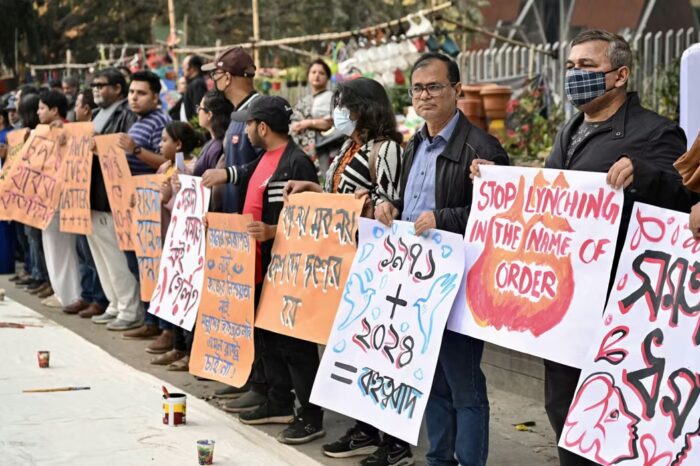Shamima Begum’s appeal underway, could face death penalty if she went to Bangladesh

Image by BBC/The Guardian
Shamima Begum, who is contending the removal of her UK citizenship after she left the country to go to Syria in 2015, could face capital punishment if she were to return to Bangladesh, her country of origin, a court heard.
Begum, who joined the terrorist organization ISIS at the age of 15, was born in east London to Bangladeshi immigrant parents. In 2019, the then-home secretary Sajid Javid, took the decision to strip her off her citizenship on national security grounds. Upon being questioned, the Home Office said that they did so as Begum had Bangladeshi citizenship. Reports, on the other hand, have stated that she would be rendered stateless as she was not a citizen of Bangladesh.
However, according to a report by The Guardian, the foreign minister of Bangladesh confirmed in May 2019 that if she went to Bangladesh, she could face death penalty for her involvement in terrorism.
Her barrister Dan Squires KC told the Special Immigration Appeals Commission (Siac) that Javid had not considered the serious consequences of removing her citizenship, given that she had never been to Bangladesh.
He also said in his submissions, “It is clear that he gave no consideration to the prospect that the deprivation decision would render the appellant de facto stateless.”
“The home secretary has not responded to the allegation that the decision-maker neither directed his mind to this issue nor took steps such as contacting the Bangladeshi authorities to find out their position regarding the appellant,” Squires added.
He said that if Javid had contacted the authorities, they would confirm that Begum would be hanged upon her entry into the country.
But, Home Office lawyers said that the argument “appears to amount to an assertion that the secretary of state is under a duty to seek the views of foreign governments before he decides whether to deprive one of their nationals of their British citizenship.”
“Such an argument, were Siac to accept it, would have very serious consequences – indeed, it would likely render the entire deprivation regime inoperable,” they added.
Begum’s mother Asma expressed her state of distraught in a statement describing how she thought of her daughter “almost every hour of every day” after she ran away.
“When she left home in 2015, our worlds fell apart. Her drawers are still full, her perfume, pens and jewellery, and her clothes are still there. Her pyjamas are folded neatly. Her school blazer is still hanging on the door in the front room, just as it was when she left,” she said.
Squires stressed that the statement was indicative of the strong connection that Begum had with her family.








